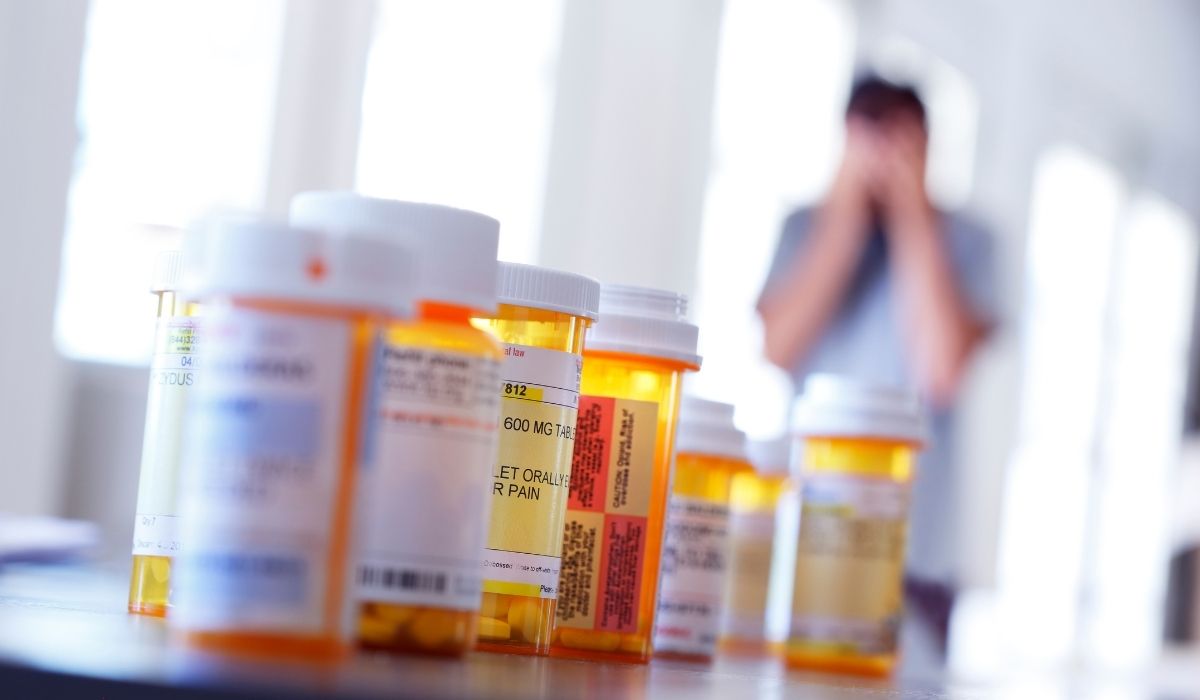What Does “Meth and Mental Health” Really Mean?
When people talk about meth and mental health, they are talking about how using meth (methamphetamine) can hurt a person’s mind, mood, and behavior.
Meth is a powerful drug that can change the brain very quickly. It might make someone feel “up” for a short time, but it can also lead to deep pain, confusion, and serious mental health problems.
This guide will explain in simple words:
-
What meth does to the brain and body
-
How it can lead to addiction and mental illness
-
Why some people have a dual diagnosis (addiction + mental health disorder)
-
How mental health treatment and therapy can help
If you or someone you care about is struggling, you are not alone. Help is real, and recovery is possible.
What Is Methamphetamine?
A Quick Look at Meth
Methamphetamine (often called “meth,” “crystal,” or “ice”) is a strong stimulant drug. It speeds up the body and brain. People may smoke it, snort it, or inject it.
At first, meth might make a user feel:
-
Very awake
-
Very excited
-
Full of energy
-
Like they can do anything
But these good feelings do not last. After the “high,” a crash comes, and life often gets worse over time.
Why People Start Using
People may use meth because they:
-
Feel sad, numb, or empty
-
Want more energy for work or school
-
Want to lose weight
-
Try to forget trauma or stress
-
Already struggle with mental health problems
Many people with substance abuse issues are in deep pain long before they ever try drugs.
How Meth Changes the Brain and Behavior
Meth, Dopamine, and the Brain
Meth raises a brain chemical called dopamine. This chemical is tied to:
-
Pleasure
-
Motivation
-
Learning
At first, the brain may feel “super happy.” But with time, meth damages the brain’s reward system. That means:
-
Normal things (friends, hobbies, food) feel less good
-
The person starts to need meth just to feel “normal”
-
Cravings can feel very strong
Behavior Changes
As meth use grows, a person’s behavior often changes:
-
They may talk very fast
-
They may move non-stop
-
They may get angry or show aggression easily
-
They may act in risky ways, including violence
Over time, meth can pull a person away from family, school, work, and community.
Common Mental Health Problems Linked to Meth
Anxiety, Paranoia, and Insomnia
Meth can cause serious anxiety. The person may feel:
-
Restless
-
On edge
-
Worried about everything
It can also cause paranoia. This means the person may:
-
Think others are out to hurt them
-
Feel watched or followed
-
Not trust friends or family
Because meth is a strong stimulant, many people also have insomnia (trouble sleeping). Nights without sleep can make mental health much worse.
Psychosis and Seeing or Hearing Things
With heavy use, some people develop psychosis. This is a severe break from reality. Signs can include:
-
Seeing things that are not there
-
Hearing voices
-
Strong, fixed beliefs that are not true
This can be very scary for the patient, their family, and the community. In some cases, psychosis can lead to dangerous behavior, self-harm, or violence.
Dual Diagnosis: Addiction and Mental Health Together
What Is Dual Diagnosis?
Dual diagnosis means a person has both:
-
A substance use disorder (like meth addiction), and
-
A mental health disorder (like depression, anxiety, PTSD, or bipolar disorder)
This is very common with meth. Some people had mental health problems before they used meth. Others develop mental health issues because of meth.
Why It Matters
If a person only treats the addiction and ignores the mental health side, they often relapse. If they only treat the mental health side and ignore the meth use, they also struggle.
The best care treats both at the same time using:
-
Mental health treatment
-
Therapy
-
Medical care
-
Support groups
The Real-Life Impact: Health, Homelessness, and More
Physical Health and Alcohol Use
Meth does not just hurt the mind; it also deeply harms physical health. It can cause:
-
Heart problems
-
Weight loss and bad nutrition
-
Dental problems (“meth mouth”)
-
Skin sores from scratching
Some people use meth and alcohol together, which makes things worse. Mixing substances raises the risk of overdose, injury, and dangerous decisions.
Homelessness and Life Falling Apart
For some people, meth can lead to:
-
Job loss
-
Broken relationships
-
Legal trouble
-
Homelessness
This does not mean the person is “bad.” It means the drug and mental illness are very strong. With the right help, people can rebuild their lives.
How Therapy and Psychiatry Help
The Role of Therapy
Different types of therapy can help a person heal from meth use and mental health problems. One helpful approach is dialectical behavior therapy (DBT).
DBT can help people learn:
-
How to handle strong feelings
-
How to calm their body and mind
-
How to solve problems without using drugs
-
How to build healthier relationships
Other forms of psychology and counseling may also be used, like cognitive behavioral therapy (CBT) and trauma-focused care.
The Role of Psychiatry
Psychiatry is the medical field that focuses on mental health. A psychiatrist can:
-
Check for mental health disorders
-
Give a diagnosis
-
Prescribe medications when needed
-
Work with the therapy team
Medication may help with anxiety, depression, psychosis, or sleep, but it works best when combined with counseling and support.
What Does Meth and Mental Health Treatment Look Like?
First Steps: Safety and Support
Treatment usually starts with keeping the person safe. This can include:
-
A medical check-up
-
Support to stop using meth
-
Help with cravings and withdrawal
-
A safe place to rest and sleep
In some cases, people may need inpatient or residential care for a time.
Ongoing Care
After the first steps, care may include:
-
Weekly or daily therapy sessions
-
Group support meetings
-
Family sessions
-
Plans to handle triggers and stress
The goal is not just to stop meth use, but to build a new, healthier life.
How to Know When It’s Time to Get Help
You don’t have to wait for “rock bottom.” It’s time to get help if you or someone you love:
-
Uses meth often or cannot stop
-
Has strong mood swings or aggression
-
Has psychosis, paranoia, or scary thoughts
-
Feels hopeless, broken, or trapped
-
Has big changes in sleep, eating, or behavior
Reaching out early can prevent deeper harm and make recovery easier.
How Friends and Family Can Help
If someone you care about is struggling with meth and mental health:
-
Speak in a calm, kind voice
-
Let them know you care and are worried
-
Avoid yelling, shaming, or name-calling
-
Encourage them to talk to a doctor, therapist, or treatment center
-
Offer to help with calls, rides, or paperwork
Remember, you did not cause the addiction, and you cannot cure it alone. But your support can make a big difference.
Seeking Treatment? We Can Help!
We work with PPO Out of Network Health Insurance Policies
If you or a loved one are struggling with mental health challenges or substance abuse, reach out to Mountain Sky Recovery today. Our team of compassionate professionals is here to support your journey towards lasting well-being. Give us a call at 951-498-5412. Visit SAMHSA for more information.
FAQs
Can meth cause mental illness even if I only use it a few times?
Will my mental health get better if I stop using meth?
Is it safe to mix meth with alcohol or other drugs?
What kind of treatment works best for meth and mental health at the same time?
How do I ask for help if I feel ashamed or scared?
-
A trusted family member or friend
-
A doctor or nurse
-
A therapist or counselor
-
A local addiction or mental health treatment center



